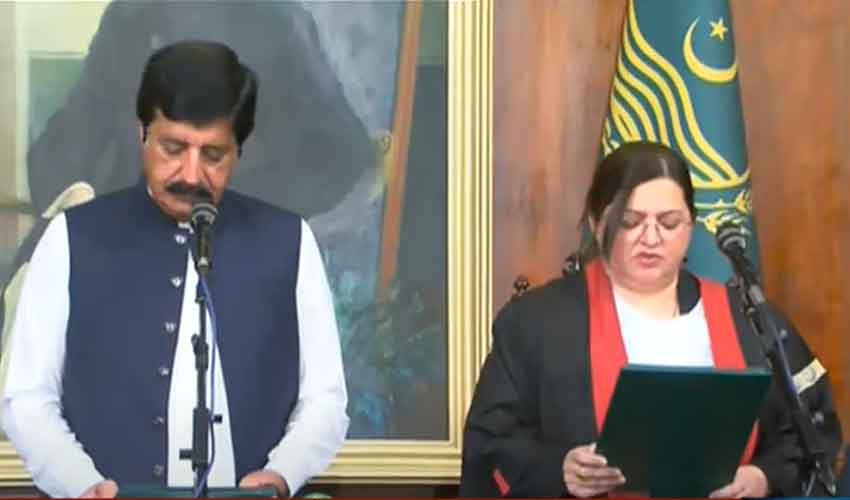LAHORE: Justice Aalia Neelum was sworn in today as the first woman chief justice of the Lahore High Court.
The oath-taking ceremony took place at 9:30 am at the Governor House in Lahore, with Punjab Governor Sardar Salim Haider administering the oath. Following the ceremony, Chief Justice Neelum proceeded to the Lahore High Court, where she received a guard of honour from well-armed police forces.
Her appointment, along with that of Justice Shafi Siddiqui, was approved by President Asif Ali Zardari. On July 3, the Judicial Commission of Pakistan, chaired by Chief Justice of Pakistan Qazi Faez Isa, unanimously approved her elevation after considering the nominations of three judges, including Acting Chief Justice Shujaat Ali Khan and Justice Ali Baqar Najafi.
Who is Justice Aalia Neelum?
Justice Neelum’s appointment marks a significant milestone in the history of the Lahore High Court. A prominent jurist, her illustrious career spans over two decades, beginning in 1996. Her expertise covers a wide range of legal fields, including constitutional law, white-collar crime, civil, criminal, anti-terrorism laws, NAB, banking offences, special central courts law, and banking laws.
Born on November 12, 1966, Justice Neelum earned her LLB degree from the University of Punjab in 1995. She was enrolled as an advocate in 1996, became an advocate of the high court in 1998, and later an advocate of the Supreme Court in 2008. She was appointed as an additional judge of the Lahore High Court in 2013 and took the oath as a permanent judge on March 16, 2015.
Educational qualifications:
- LLB University of the Punjab, Lahore.
- MA (Political Science) University of the Punjab, Lahore.
- Diploma in Sharia Law from the Islamic University of Islamabad.
- Diploma in Advance Sharia Law from the Islamic University of Islamabad.
- Diploma in Intellectual Property Rights, the University of the Punjab
- BEd the University of the Punjab, Lahore.
Throughout her tenure, she has delivered 203 exemplary judgments, demonstrating her profound understanding and commitment to justice.
Notably, she was the first woman administrative judge of the anti-terrorism courts across the province and played a crucial role in establishing separate courts to hear cases of gender-based violence.
Her appointment as chief justice is a testament to her dedication and significant contributions to the legal field.


